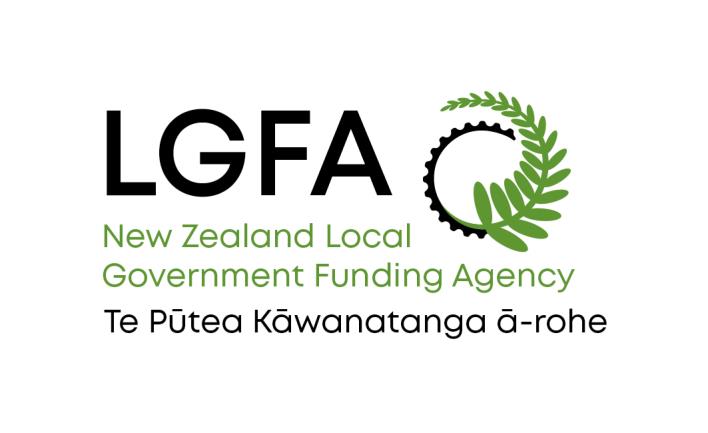
19 September 2023
Andrew Mitchell
[FYI request #24025 email]
Thank you for your requests for information made under the Local Government Official Information
and Meetings Act 1987, received by the Department of Internal Affairs on 3 September 2023. This
request was transferred to New Zealand Local Government Funding Agency Limited (
LGFA) by the
Department of Internal Affairs on 11 September 2023. The following information is provided in
response to your requests.
1. What is the company that the LGFA is registered as under the Companies Register?
New Zealand Local Government Funding Agency Limited (company number 3677052). Our
NZBN is 9429030861961.
2. What are the sources of funds being the guaranteed creditors and or beneficiaries, if any,
available to the LGFA that were not available under the previous lending regime, where
the LGFA can raise funds?
LGFA was established to raise money on behalf of local authorities on terms that are more
favourable to them than if they raised it directly.
LGFA raises funding from the issuance of LGFA bonds (2024 to 2037 maturities) and LGFA
Bills (less than 1-year terms) to investors. LGFA bonds denominated in NZD are listed on the
NZX debt market .
In August 2023, LGFA also issued fixed rate bonds denominated in Australian dollars.
Before LGFA was established, local authorities borrowed money from various sources.
Borrowing from LGFA does not prevent local authorities from borrowing from those sources.
3. Are the funds hedged using interest rate swaps or derivatives of any nature?
LGFA raises funding on a fixed rate basis via the issuance of fixed rate bonds and typically on
lends on a floating rate basis. It hedges the interest rate risk by using interest rate swaps.
In August 2023, LGFA issued also issued fixed rate bonds denominated in Australian dollars.
The currency and interest rate risk for those bonds is hedged using swaps.
4. How is each Local Authority and or guarantor protected from other defaulting guarantors
and or local authorities?
LGFA lends to local authorities on a secured basis.
It is common for local authorities that borrow on a secured basis to grant a charge over a
specific rate or a charge over rates revenue in general. The granting of a charge over rates by
a local authority is contemplated by the Local Government Act 2002.1
A charge over rates revenue is typically created by a local authority entering into a
Debenture Trust Deed (
DTD). The DTD creates a security interest in favour of a specified
Debenture Trustee who holds the security for the benefit of the secured creditors of the
local authority. The DTD provides the mechanism for the security to operate and requires
the Debenture Trustee to oversee and enforce the DTD.
If a local authority does not meet its financial obligations (as principal or as guarantor), the
secured creditor (such as LGFA) may make demand under the DTD by requesting the
relevant Debenture Trustee to enforce the security interest created by the DTD. If the
security interest is enforced, one of the options available to the Debenture Trustee is to
appoint a receiver. If a receiver is appointed, and the local authority has given security over
its rates revenue, then section 115(2) of the Local Government Act 2002 applies.
Section 115(2) states that the receiver can assess and collect in each financial year a rate
under this section to recover sufficient funds to meet the payment of the local authority’s
commitments in respect of the loan or financial obligation during that year, and the
reasonable costs of administering, assessing, and collecting the rate.
This means that if a local authority defaults in paying LGFA the amount it has borrowed from
LGFA, LGFA could (subject to the terms of the DTD) seek to recover the amounts owed by
that local authority under the security interest created by the DTD. LGFA cannot seek to
recover this amount from other local authorities.
LGFA requires local authorities that wish to participate in the LGFA borrowing structure to
meet certain financial covenants. These financial covenants are designed to be indicators of
a local authority's ability to meet its financial obligations as they fall due. LGFA is not obliged
to lend to a local authority that fails to meet these financial covenants.
In addition, the security and financial covenant arrangements LGFA has in place with each
local authority, LGFA has paid up shares and retained earnings of NZ$105.8 million as well as
uncalled shares of NZ$20 million and NZ$360.3 million of borrower notes that can be
converted into equity if required.
When LGFA borrows money, its obligations are guaranteed by most of the local authorities
who participate in the LGFA borrowing structure (
LGFA Guarantee).
The LGFA Guarantee is made in favour of a Security Trustee who holds the guarantee for the
benefit of LGFA's lenders. The New Zealand Government does not guarantee LGFA. Local
authorities do not provide a guarantee of another local authority's debt.
LGFA's lenders can request the Security Trustee to make demand under the LGFA Guarantee
if LGFA defaults on its obligations. Any demand the Security Trustee makes under the LGFA
Guarantee must be made on a pro-rata basis according to guarantor's prior year's annual
rates revenues. If a guarantor fails to pay its pro-rata share of a demand under the LGFA
Guarantee, the Security Trustee will make further demands on the other guarantors for
1 At s 115.
payment of the unpaid amount on a pro-rata basis until the outstanding amounts are paid in
full.
Local authority's obligations under the LGFA Guarantee are secured by the security provided
by local authorities under their respective DTDs but because of these security and capital
arrangements outlined above, the risk of a call on the guarantee is low.
Regards
Mark Butcher
Chief Executive Officer
